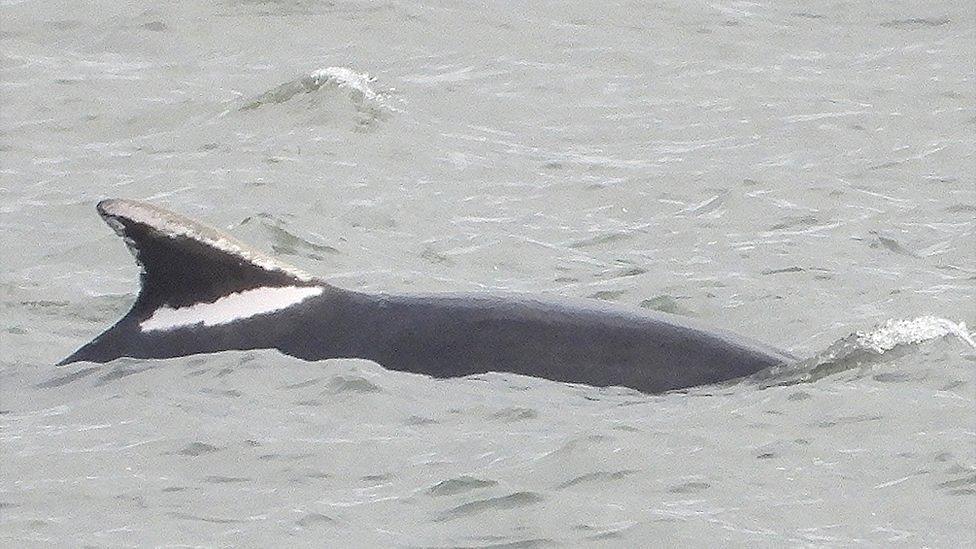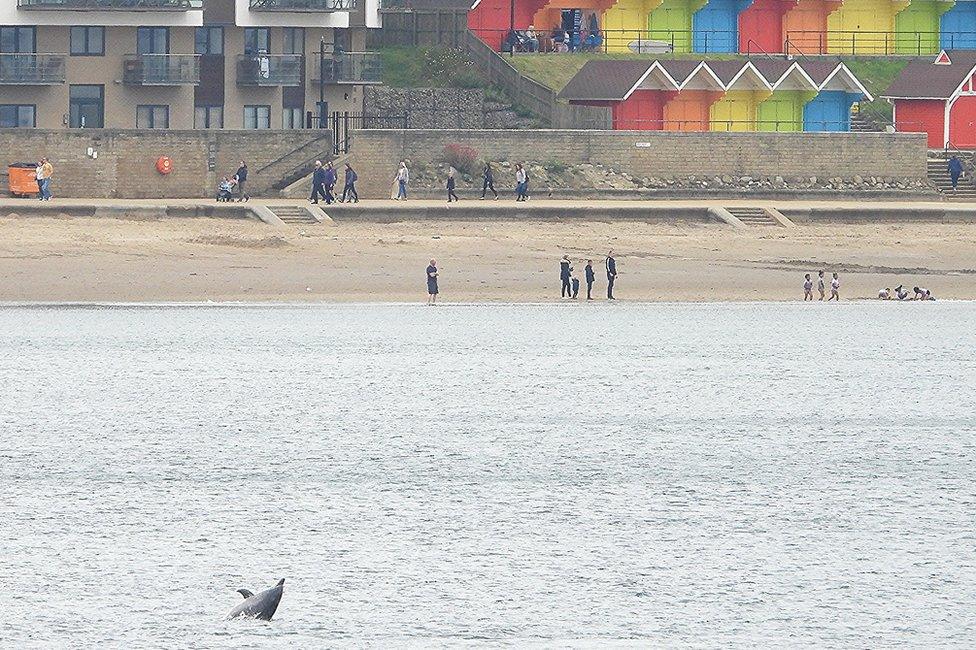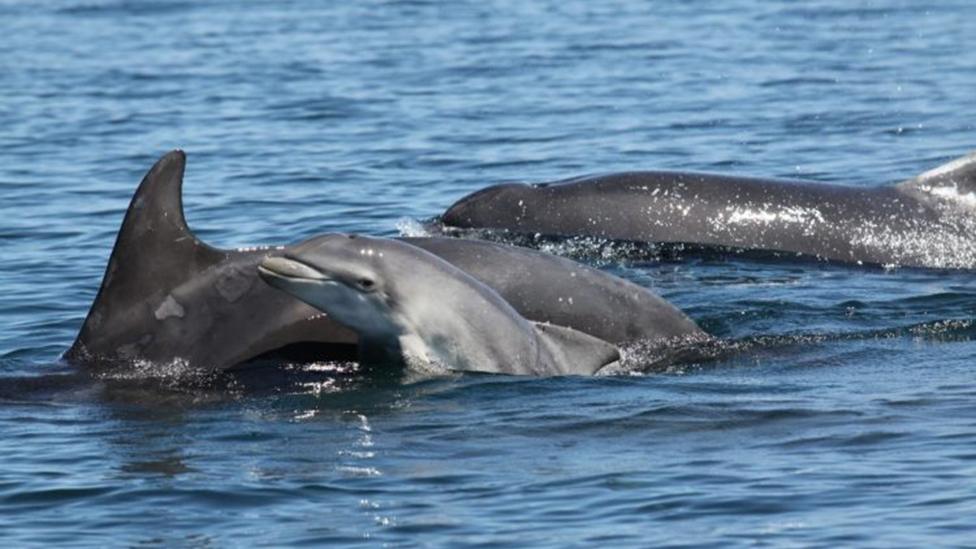Bottlenose dolphins spotted off Yorkshire in December
- Published

Bottlenose dolphins like "116 Runny Paint" above are photographed and identified by fins and markings
A pod of bottlenose dolphins has been spotted off the Yorkshire coast in what is thought to be the first ever December sighting.
The creatures, who normally live in Scotland's Moray Firth, appear to be foraging further south, said experts.
Wildlife boat skipper Sean Baxter saw four animals just off Staithes, North Yorkshire, on 17 December.
Sea Watch Foundation's Robin Petch said it appeared the dolphins had moved on a "semi-permanent basis".
Mr Petch said the latest spot was "perhaps the most exciting development in recent years".
Watchers onshore later confirmed about 15 dolphins in three groups, heading south towards Whitby, he said.
New animals, identified by fin shape and markings, seen in Yorkshire this year include "985 Spuds" and "1052 Paint Splosh".
Some of the dolphins are now rarely seen in the waters of their former Scottish home, added Mr Petch.

This dolphin decided to make an appearance just off the beach at Scarborough
Moray Firth dolphin "009 Guinness" was first identified by Mr Petch when he photographed her fin in May 2009 off Whitby.
Since then, numbers have increased and many dolphins have been photographed, identified and recorded.
Mr Petch said there was salmon and sea trout along the coast and in the Esk and the Humber, with sea bass and shoals of mackerel also present.
"There was evidence of a dolphin population on this coast in pre-industrial times and maybe the decline in pollution over recent years is encouraging a return to their old hunting grounds," he added.
Despite the increase in sightings, not all have ended positively. On Christmas Eve last year, 10 sperm whales died after washing up on the coast near Withernsea in East Yorkshire after they were believed to have made a "navigational error".

Mr Petch said younger male sperm whales could end up "confused in shallower water off the east coast"
Sea Watch Foundation and Yorkshire Wildlife Trust have trained more than 150 new observers to record cetacean (whale, dolphin and porpoise) activity.

Follow BBC Yorkshire on Facebook, external, Twitter, external and Instagram, external. Send your story ideas to yorkslincs.news@bbc.co.uk, external.
Related topics
- Published12 March 2021
